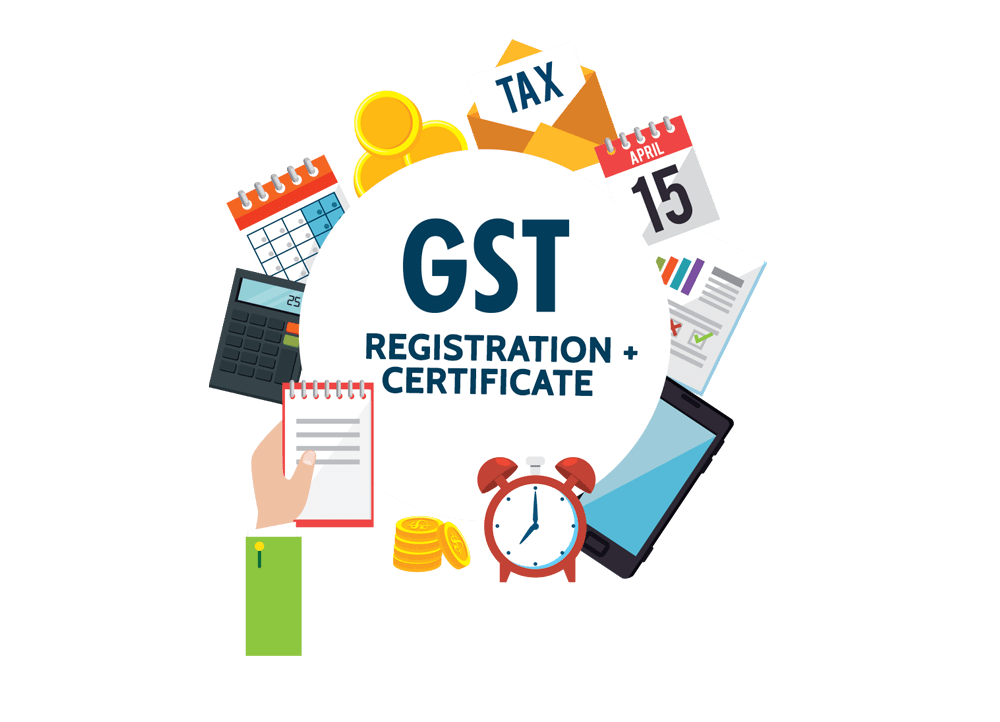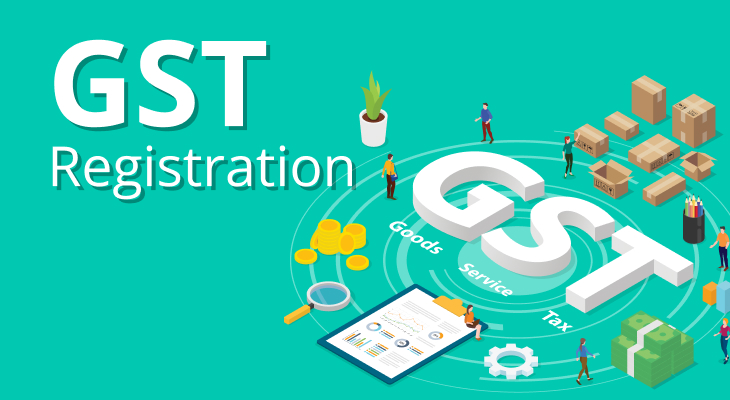Compare and Choose the Best GST Registration Services in Singapore for Your Demands
Compare and Choose the Best GST Registration Services in Singapore for Your Demands
Blog Article
From Beginning To End: The Ultimate Roadmap to GST Enrollment for Companies Seeking Financial Stability
Browsing the complexities of Product and Services Tax (GST) enrollment is a critical action for businesses pursuing economic stability. From comprehending the basic principles of GST to following post-registration guidelines, the procedure can seem intimidating at initial glance. However, damaging down the roadmap into workable steps can streamline the enrollment trip for companies seeking to boost their financial standing. Allow's discover the crucial components that comprise this utmost roadmap and find exactly how each stage adds to laying a strong structure for monetary success.
Understanding GST Essentials
Delving right into the basic principles of Goods and Services Tax Obligation (GST) is essential for gaining a thorough understanding of its implications on businesses and the economic situation. GST is a value-added tax obligation levied on many goods and solutions for domestic intake. It has actually changed multiple indirect tax obligations that existed in the pre-GST era, enhancing the tax framework and enhancing simplicity of doing company in India. Under the GST system, both goods and solutions are taxed at a details rate, which is determined based upon their category. Companies are called for to register for GST if their yearly turnover goes beyond the threshold limitation established by the federal government. Input Tax Credit Score (ITC) is a significant function of GST, permitting companies to assert credit scores for taxes paid on inputs, reducing the general tax burden. Comprehending the basics of GST is crucial for services to comply with tax regulations, handle their funds efficiently, and add to the nation's financial development by participating in a clear tax obligation system.
Qualification Standards for Enrollment
As of the current guidelines, the threshold restriction for GST enrollment is a yearly aggregate turnover of 40 lakhs for organizations running within a state, except for special group states where the limit is 20 lakhs. Furthermore, particular services are required to register for GST irrespective of their turn over, such as interstate suppliers, laid-back taxable individuals, and organizations responsible to pay tax obligation under the reverse fee system. It is crucial for services to extensively evaluate their turn over and purchase types to identify their GST registration responsibilities precisely.
Records Required for Enrollment
Having satisfied the eligibility criteria for GST registration, organizations should now ensure they have the requisite papers in position to proceed with the registration process effectively. The records needed for GST enrollment usually consist of evidence of organization constitution, such as partnership deed, registration certification, or incorporation certificate for different sorts of services. In addition, businesses require to provide documents establishing the major workplace, such as a rental arrangement or power expense. PAN card of business, along with the identity and address proof of promoters/partners/directors, are important for verification objectives. why not try these out Bank account statements, along with canceled cheques or a copy of the financial institution passbook, are required to validate the economic information given during enrollment. Furthermore, services need to have digital trademarks prepared for the authorized signature. Making sure all these papers are arranged and readily offered will speed up the GST registration process, allowing organizations to abide by tax obligation guidelines perfectly.
Step-by-Step Registration Process
Starting the GST registration process involves a collection of organized steps to guarantee a smooth and compliant enrollment for services. The very first step is to go to the GST portal and load out the registration kind with accurate information of the service entity. Following this, the applicant gets a Temporary Referral Number (TRN) which is used to return to the application procedure if it's not completed in one go.
Following, all needed files according to the checklist supplied by the GST portal demand to be published. These papers usually include evidence of business identity, registration and address proofs of marketers, economic declarations, and business entity's PAN card.

Post-Registration Compliance Guidelines

Final Thought
To conclude, organizations looking for monetary stability has to recognize the fundamentals of GST, meet qualification requirements, collect required documents, adhere to the step-by-step registration procedure, and adhere to post-registration standards - Best GST registration services in Singapore. By adhering to these steps, organizations can make sure compliance with tax laws and keep monetary security in the long run
In addition, specific companies are called for to sign up for GST irrespective of their turn over, such as interstate vendors, casual taxed persons, and organizations responsible to pay tax under the reverse fee mechanism.Having met the qualification Best GST registration services in Singapore criteria for GST enrollment, businesses should now ensure they have the requisite records in location to continue with the enrollment process successfully. The files needed for GST registration commonly consist of proof of business constitution, such as partnership act, enrollment certification, or incorporation certification for various types of businesses. Additionally, companies require to offer papers developing the major place of company, such as a rental contract or electrical energy expense.Starting the GST registration procedure entails a series of organized actions to ensure a seamless and certified enrollment for businesses.
Report this page